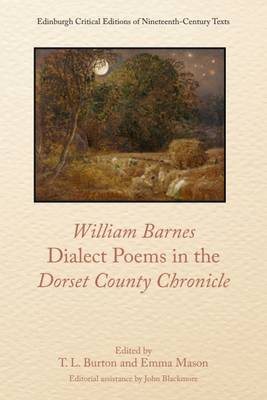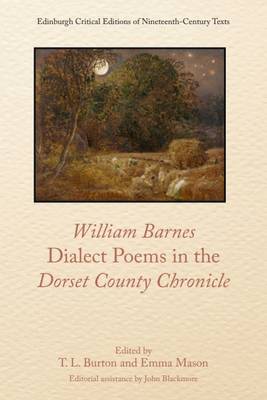
Door de nationale actiedag kan je online bestelling iets langer onderweg zijn dan normaal. Dringend iets nodig? Reserveer en haal na 1u af in een winkel met voorraad.
- Afhalen na 1 uur in een winkel met voorraad
- Gratis thuislevering in België vanaf € 30
- Ruim aanbod met 7 miljoen producten
Door de nationale actiedag kan je online bestelling iets langer onderweg zijn dan normaal. Dringend iets nodig? Reserveer en haal na 1u af in een winkel met voorraad.
- Afhalen na 1 uur in een winkel met voorraad
- Gratis thuislevering in België vanaf € 30
- Ruim aanbod met 7 miljoen producten
William Barnes, Dialect Poems in the Dorset County Chronicle
€ 222,45
+ 444 punten
Omschrijving
It is commonly believed that William Barnes (1801-1886) steered clear of politics in his poetry. Yet, the first poem he ever published in the Dorset dialect was an attack on the enclosures of the village commons in the 1830s. His next eight poems dealt with such topics as rural poverty, penury-induced emigration, the Poor Laws and Corn Laws, and the People's Charter of 1838. This edition of his dialect poems - arranged in the chronological order of their first publication in the Dorset County Chronicle - exposes the fallacy of the old assumptions about Barnes's lack of interest in political affairs. It shows the gradual development of Barnes's artistry as a poet and of the linguistic means through which he set out to represent in writing the key features of the dialect of his native Blackmore Vale.
Specificaties
Betrokkenen
- Uitgeverij:
Inhoud
- Aantal bladzijden:
- 608
- Taal:
- Engels
- Reeks:
Eigenschappen
- Productcode (EAN):
- 9781474401050
- Verschijningsdatum:
- 31/12/2025
- Uitvoering:
- Hardcover
- Formaat:
- Genaaid
- Afmetingen:
- 156 mm x 234 mm

Alleen bij Standaard Boekhandel
+ 444 punten op je klantenkaart van Standaard Boekhandel
Beoordelingen
We publiceren alleen reviews die voldoen aan de voorwaarden voor reviews. Bekijk onze voorwaarden voor reviews.








